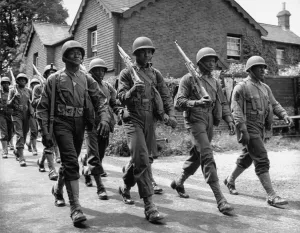In the week after the election, the Equal Justice Initiative, of Montgomery, Alabama, released a new report—a fifty-three-page addendum to last year’s “Lynching in America,” an unprecedentedly thorough survey of American racial violence and terror between 1877 and 1950. Drawing on small-town newspaper and court archives, along with interviews of local historians and victims’ descendants across the South, “Lynching in America” tallied four thousand and seventy-five lynchings, at least eight hundred more than any previous count. The new report, “Lynching in America: Targeting Black Veterans,” concludes that, during the same period, “no one was more at risk of experiencing violence and targeted racial terror than black veterans.” The susceptibility of black ex-soldiers to extrajudicial murder and assault has long been recognized by historians, but the topic has never received such comprehensive standalone treatment. In the aftermath of Trump’s victory, it seems eerily relevant.
Like “Lynching in America,” the new report, which is available online, was compiled by E.J.I. attorneys and research fellows. The organization is, at its core, a law firm that challenges illegal convictions, unfair sentences, and prison abuse. But, as Jeffrey Toobin noted in his recent Profile of E.J.I.’s founder and director, Bryan Stevenson, over time the nonprofit has taken on another mission: complicating mainstream American narratives about race, history, and violence.
Source date:
Nov 27 2016

